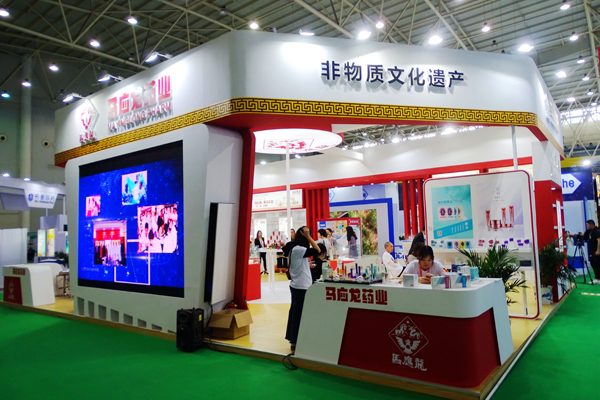Pharma firms step into cosmetics industry


Low R&D expenses and high profit margins make it an attractive transition option for traditional drug enterprises
"When I heard about lipsticks produced by a company that makes dermatitis cream, I thought it was funny. What does the lipstick smell like? I think I will definitely buy one when it comes out."
This was the response from Shen Li, a 22-year-old student in Shanghai, when she heard 999pyp, a brand under Chinese pharmaceutical giant CR Sanjiu famous for producing Compound Dex, was about to introduce a set of lipsticks.
According to the company, the set is composed of three lipsticks in different colors-bright red, sunset red, and bright orange, which will be sent out as a gift.
Market insiders said that traditional pharmaceutical enterprises stepping into the cosmetics industry was nothing new. Compared with medicine, the cosmetics business has relatively low research and development expenses and a low admittance threshold, and its gross profit margin is high, making it the best transition option for traditional pharmaceutical enterprises.
They noted that in recent years, unsatisfactory main businesses or a need for a multi-format layout had forced a host of old and famous drug brands to make the transition into the wider health industry. These enterprises are embracing new retail, crossover marketing and social media, to build younger brand images.
More than a decade ago, traditional drug companies, such as Yunnan Baiyao and Guangzhou Pharmaceutical Holdings Ltd, began to look at the toothpaste category.
And the beverage segment, including mineral water, functional drinks and herbal tea, is another target area. The trademark dispute between Wanglaoji and JDB popularized the herbal tea produced by Guangzhou Pharmaceutical Holdings Ltd, while other enterprises, such as Beijing Tongrentang Group Co Ltd, Xiuzheng Pharmaceutical Group, Taiji Group, also tapped into the sector.
In recent years, the cosmetics industry has become a favorite of traditional drug enterprises. Tongrentang sells sleeping masks, while the skin care kit manufactured by Zhangzhou Pien Tze Huang Pharmaceutical Co Ltd is popular among the millennial generation.
"I have been using skin care masks from Tongrentang for over two years. I trust the products because I trust the brand. It has many masks with different functions such as whitening, firming and moisturizing. And the prices are reasonable. The average price for a mask is less than 10 yuan ($1.4)," said Ma Yuanyuan, a 22-year-old student in Beijing.




































